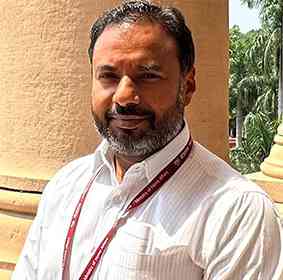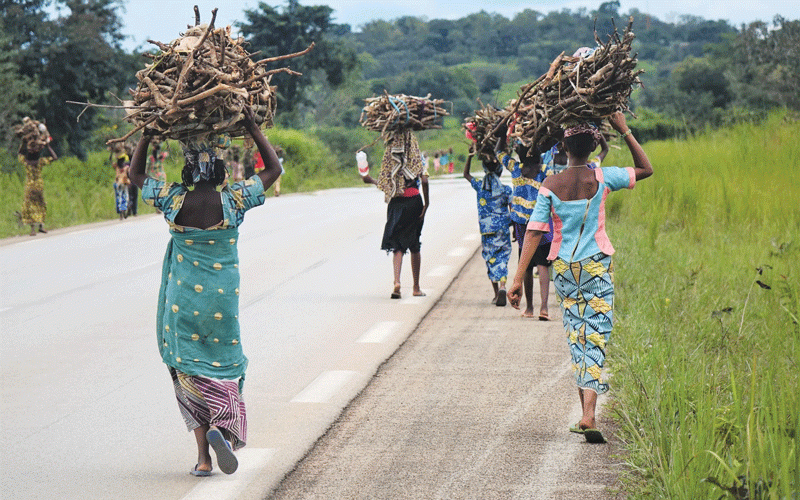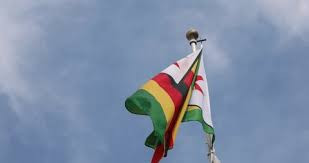
ON September 26, 2024, Bramha Kumar (BK), the new Indian Ambassador to Zimbabwe presented his credentials to President Emmerson Mnangagwa, marking the beginning of his tenure. In an exclusive interview with our senior reporter Melody Chikono (MC), the ambassador shared insights into the evolving bilateral relations between Harare and New Delhi over the past four decades. Below are excerpts of the interview:
MC: Can you take us through your relationship with Zimbabwe?
BK: India and Zimbabwe have a long history of close and cordial relations. During the era of the Munhumutapa Kingdom, Indian merchants established strong links with Zimbabwe, trading in textiles, minerals and metals. India supported Zimbabwe's freedom struggle.
MC: What specific support has India provided to Zimbabwe?
BK: I understand that Zimbabwe is having a tough time due to the El Niño phenomenon. This year again, 1 000 metric tonnes (mt) of rice is being delivered from India to ease pressure on the Government of Zimbabwe on the food security front. Earlier, India also extended a grant of US$1 million and announced aid of 500 tonnes of rice in 2016, in response to the international appeal made by Zimbabwe in the wake of national drought disaster in June 2017. India extended a grant of US$1 million to Zimbabwe in response to the 2016-17 floods disaster. In 2020, India gifted US$2,2 million worth of emergency medicines as well as 1 000mt of rice. We also have some trade links where textiles and some other goods were major items of exchange between the two countries.
MC: How does the Indo-Zim partnership plan to drive growth and development?
BK: We have already established 17 Indo-Zim Technology Centres. I visited Harare Institute of Technology; the Vice-Chancellor gave me a tour of it, which is equipped with heavy equipment and heavy machinery. So, there are mechanical and engineering students, who are learning how to operate those machines, and how to use them in the line of production. So, this is basically a capacity building programme provided by the Government of India. We will be happy to assist for further upgrades if required. India established 17 Indo-Zim Technology Centres in Zimbabwe through a grant of US$5 million. These centres were upgraded in Phase II with the supply of the latest machines worth US$2,93 million and completed in 2023.
MC: What are the primary areas of collaboration between India and Zimbabwe?
- Zim’s poor batting hands India series
- Proposed raids on grain farmers raises stink
- Wheat growers urged to increase production
- Is Zimbabwe ready for green building standards?
Keep Reading
BK: The Indian private sector has already made good investments, estimated at US$600 million, in sectors like food processing, beverages, mining, textiles, agricultural equipment, polymers etc. It is on an upward trajectory. Indian investors employ some 5 000 people in Zimbabwe. Similarly, the number of Indian companies operating in Zimbabwe is rising gradually. It will be good if the Government of Zimbabwe interacts with Indian companies through an institutional mechanism and responds to their needs.
It may be an encouraging move and may attract more Indian companies. Further investments from India will directly benefit Zimbabwean youths who would be trained and employed by Indian companies. Capacity building is an important pillar of our Development Partnership with Zimbabwe with training extending across several areas both in civilian and defence domains. India also stands with Zimbabwe in providing modern technical training and skilling to their youths.
It is estimated that around 5 000 students have already enrolled in various Indian colleges and universities.
MC: Which infrastructure projects is India considering in Zimbabwe?
BK: There are discussions happening between our National Highway Authority of India and Zimbabwe National Roads Administration to get some Memorandum of Understanding, which can encourage Indian companies to come and invest in the roads and infrastructure sector in Zimbabwe. And, one of our construction companies, Shapoorji Pallonji Group, is already active in Zimbabwe.
They are already in touch with IDC (Industrial Development Corporation) for some phosphate plants. They are already building an Afreximbank Convention Centre near State House.
MC: Can you provide an overview of India's financial commitments to Zimbabwe?
BK: We work in two ways with friendly developing countries. One is lines of credit and the other is grant/assistance. So far, our commitments on grants have been completed. Recently, the Deka Pumping and River Water Intake System, with the help of a line of credit of US$48,1 million has been completed. Now, we are working with the Government of Zimbabwe to identify projects wherein India can provide more grants.
It needs to be examined by both governments. It should have a very high impact on community programmes. If we can get a proposal from the Government of Zimbabwe, it can be examined in India and it will be proposed. We need an identified project from the Government of Zimbabwe and accordingly our Ministry of Finance examines and then it can be announced.
MC: Have you encountered any challenges during your tenure in Zimbabwe?
BK: Zimbabwe is a very friendly country and they are very well disposed towards India and we are enjoying our very good relations between our two countries. Wherever we have identified priorities, we should work expeditiously. Like, some of the cooperation, which I have been discussing are in the areas of rural craft and capacity building, healthcare, pharmaceuticals, mining and infrastructure, roads and highways construction.
MC: What targets have you set for your tenure as ambassador?
BK: I am focusing on enhancing the trade relations between India and Zimbabwe through more government to government and business to business interactions. During my stint in Harare, I shall be taking up these matters with relevant ministries and government agencies to further our cooperation. I shall focus on regular visits of Indian business delegations to Zimbabwe. I seek full support from the Zimbabwean government and relevant agencies to utilise this opportunity to further bilateral trade and commerce, and investments. We also need to finalise some of the MoUs in identified areas as they may also encourage more business in such priority areas. Recently, Rail India Technical and Economic Service (RITES), a government of India undertaking, Jindal Group, Varun Beverages and ETG Parrogate Group (ZimGold), have announced new investments and expansions in Zimbabwe. This is welcome news for Zimbabwe. I am sure of the full support of the Government of Zimbabwe for the new deals as well as for further expansion by Indian companies.
MC: Which sectors will India focus on for future collaborations?
BK: The May 2024 Joint Trade Committee meeting identified several sectors of the economy to enhance our bilateral relations.
The promising areas include institutional framework in pharmaceuticals and healthcare, minerals and mining with training and capacity building in the diamond sector, textiles and fashion industry for employment generation, new collaborations in information communication technology and geospatial sectors.
Micro, small and medium enterprises development and rural crafts are other important mechanisms which are being explored for engaging authorities and business of the two countries. Third Round of Foreign Office Consultations between Zimbabwe and India held on August 6, 2024, in which we discussed more bilateral cooperation in identified areas of defence, agriculture, infrastructure, health sector, traditional medicine and homeopathy, mines, minerals and geology, digital platforms, consular, etc.
MC: Very interesting…
BK: Of course, there are those investment deals which have been signed. My focus will be to get them implemented. And on top of it, bilateral trade is something I am working on and I need cooperation from the Government of Zimbabwe as well. One delegation has already come and we will be looking forward to another delegation within two, three months. And I wish that the Government of Zimbabwe can also mount a delegation that can identify certain areas where they can get quality goods, cost-effective goods from India, so that it can decrease the cost, consumer cost here in Zimbabwe.
MC: What draws India to Zimbabwe's healthcare sector?
BK: India has established itself as a major player in the global healthcare and pharmaceutical sector. We are supplying our pharmaceuticals to all major countries and developing countries. We want Africa to benefit more from Indian experience in cost-effective and quality pharmaceutical goods, drugs and products. In the healthcare sector, we can work more, so that the cost of healthcare in Zimbabwe is also reduced. You might know that India is also a hub for medical tourism. A lot of Zimbabweans are going for treatments and they are coming back happily.
That gives me satisfaction to say that they are utilising Indian healthcare infrastructure. And we wish to engage with the Ministry of Health and Child Care more on these things.
I will encourage Zimbabwe to utilise India's expertise in various fields. Despite being a country of more than a billion population, we have been able to maintain our peaceful society, peaceful democracy, which is very strong even today. And, our government charter, our government programmes and policies have been for poverty alleviation, providing employment and social development.











